What are the Ethical Implications of Surveillance Technology?
The rise of surveillance technology has sparked a heated debate about its ethical implications. As we delve into this complex topic, we find ourselves navigating a landscape where privacy, security, and consent collide. Imagine living in a world where your every move is monitored, where your personal data is collected and analyzed without your knowledge. It sounds like a scene from a dystopian novel, yet it is becoming a reality in many parts of the world. The question that looms large is: at what cost do we prioritize safety over personal freedom?
Surveillance technology can be as simple as a security camera in a store or as complex as government monitoring systems that track citizens' online activities. While these tools can enhance security, they also raise significant ethical concerns. For instance, how much surveillance is too much? Are we sacrificing our civil liberties for a false sense of safety? These questions are not just theoretical; they impact our daily lives and shape our society.
As we explore the ethical implications, it is essential to consider the balance between national security and individual rights. The idea of living in a secure environment is appealing, but when does security become oppression? This dilemma is particularly pronounced in the context of government surveillance, where the line between protecting citizens and infringing on their rights becomes blurred. Citizens may find themselves in a constant state of anxiety, wondering if their actions are being scrutinized.
Moreover, the impact of surveillance technology is not uniform across society. Vulnerable communities often bear the brunt of increased surveillance, facing heightened scrutiny and discrimination. This raises critical questions about equity and fairness in the deployment of these technologies. Are we inadvertently creating a society where certain groups are disproportionately targeted and marginalized? These are the ethical dilemmas that demand our attention as we navigate the ever-evolving landscape of surveillance technology.
In summary, the ethical implications of surveillance technology are profound and multifaceted. As we stand at this crossroads, it is crucial to engage in open dialogues about privacy, security, and the rights of individuals. We must ask ourselves: how do we strike a balance that allows for safety without compromising our fundamental freedoms? The answers to these questions will shape the future of our society and the way we interact with technology.
- What is surveillance technology? Surveillance technology refers to tools and systems used to monitor, collect, and analyze information about individuals or groups, often without their knowledge.
- How does surveillance technology impact privacy? Surveillance technology can lead to significant privacy violations, as individuals may be monitored without their consent, eroding personal freedom.
- What are the ethical concerns surrounding government surveillance? Government surveillance can lead to a chilling effect on free speech, decreased public trust, and potential abuses of power.
- How does corporate surveillance differ from government surveillance? While both involve monitoring individuals, corporate surveillance often focuses on consumer data for profit, raising concerns about data ownership and exploitation.
- Why is informed consent important in surveillance? Informed consent ensures that individuals are aware of how their data is collected and used, empowering them to make informed choices about their privacy.
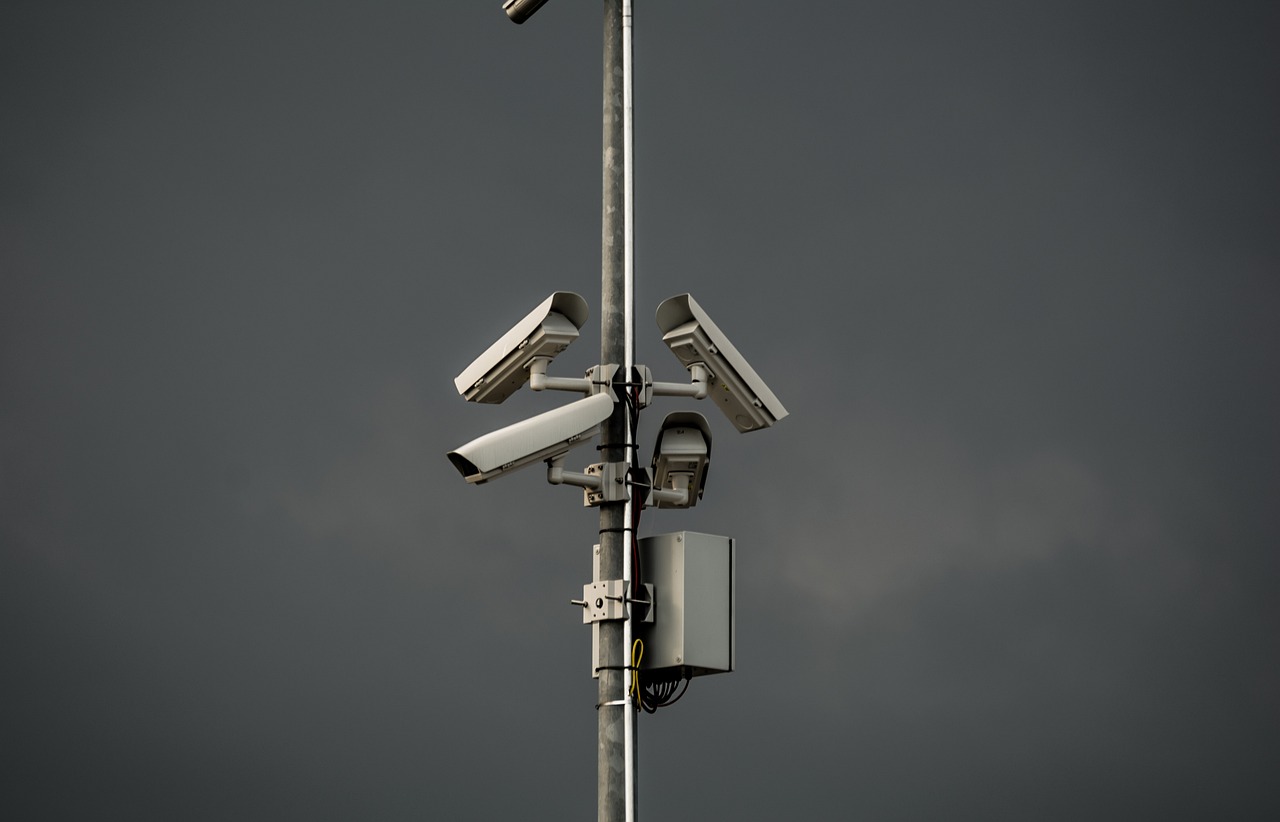
Privacy Concerns
The rise of surveillance technology has sparked a heated debate about privacy, and rightly so. Imagine walking down the street, your every move monitored by cameras, your online activities tracked by algorithms, and your personal data sold to the highest bidder. It feels like a scene straight out of a dystopian novel, doesn't it? The reality, however, is that this is becoming increasingly common in our daily lives. The potential for individuals to be monitored without their knowledge or consent raises significant questions about personal freedom and autonomy.
One of the most alarming aspects of surveillance is how it can lead to an erosion of privacy. When people know they are being watched, they may alter their behavior, leading to a sense of unease and self-censorship. This constant state of vigilance can create a society where individuals feel they cannot express themselves freely or engage in activities that might attract unwanted attention. The implications are profound: what happens to free speech when people are afraid to speak?
Moreover, the data collected through surveillance technologies is often vast and complex. From facial recognition systems to location tracking, the information gathered can be used in ways that individuals may not fully understand or consent to. For example, a simple smartphone app might collect data on your movements, preferences, and even your conversations, all without your explicit agreement. This raises the question: who owns your data?
To illustrate the gravity of these privacy concerns, consider the following table that outlines key aspects of surveillance technology and its impact on privacy:
| Aspect | Impact on Privacy |
|---|---|
| Facial Recognition | Identifies individuals without their consent, leading to potential misuse. |
| Location Tracking | Reveals personal habits and routines, compromising personal safety. |
| Data Mining | Aggregates personal information for targeted advertising or profiling. |
| Social Media Monitoring | Analyzes user behavior and sentiments, raising ethical concerns about consent. |
As we navigate this complex landscape, it’s essential to recognize that the implications of surveillance technology extend beyond individual privacy. They touch on broader societal issues, including trust in institutions and the potential for discrimination. When surveillance is employed without clear ethical guidelines, it can disproportionately affect vulnerable communities, leading to a cycle of inequality and injustice.
Ultimately, the conversation surrounding privacy concerns is not just about the technology itself, but about the values we hold as a society. How do we balance the need for security with the fundamental right to privacy? It’s a question that requires careful consideration and ongoing dialogue. As we embrace technological advancements, we must also advocate for policies that protect our privacy and ensure that our freedoms are not compromised in the name of safety.
- What is surveillance technology? Surveillance technology refers to tools and systems used to monitor individuals and collect data about their activities, often without their knowledge.
- How does surveillance impact privacy? Surveillance can lead to a significant reduction in personal privacy, as individuals may be monitored without consent, altering their behavior and limiting their freedom of expression.
- What are the ethical implications of surveillance? Ethical implications include concerns about consent, data ownership, and the potential for discrimination against marginalized communities.
- How can individuals protect their privacy? Individuals can protect their privacy by being aware of their data rights, using privacy-focused tools, and advocating for stronger privacy regulations.
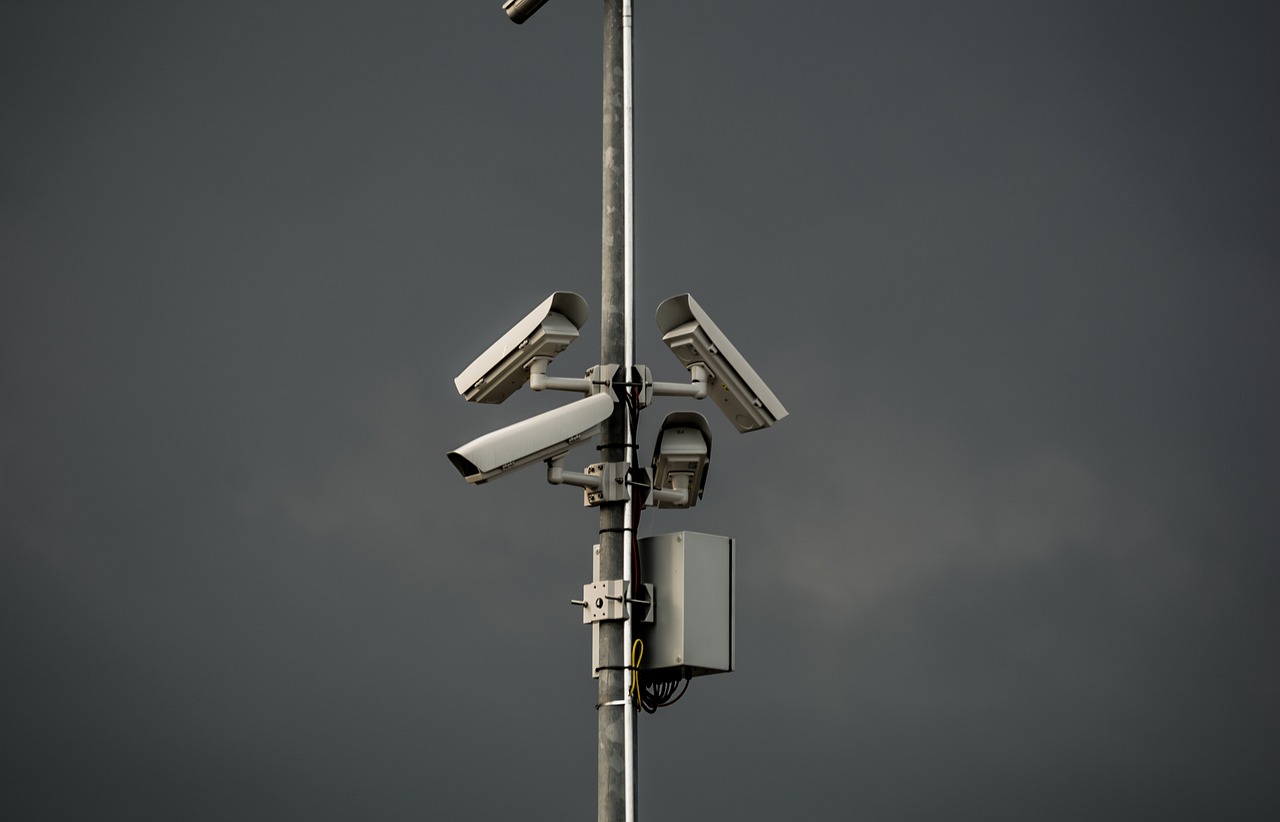
Security vs. Freedom
The debate over security versus freedom is as old as civilization itself, but in our modern age, it has taken on new dimensions. With the advent of advanced surveillance technologies, the question arises: do we sacrifice our personal freedoms for the illusion of safety? It’s a complex issue that requires us to weigh the benefits of surveillance against its potential to infringe on our rights. Imagine walking through a city where every move you make is monitored; does that make you feel safe, or does it feel like a prison?
At the heart of this discussion lies the delicate balance between national security and the protection of civil liberties. Governments often justify extensive surveillance measures by claiming they are necessary to prevent crime and terrorism. However, we must ask ourselves: does increased surveillance genuinely enhance our safety, or does it create a society where we are constantly watched, leading to a culture of fear? The reality is that while surveillance can help identify threats, it can also lead to overreach and abuse of power.
Consider the implications of government surveillance on our daily lives. When citizens are aware that they are being watched, it can lead to a chilling effect on free speech and dissent. People may choose to self-censor their thoughts and opinions out of fear of repercussions. This is not merely a theoretical concern; history has shown us that authoritarian regimes often use surveillance to stifle opposition. The question then becomes: how do we ensure that the tools meant to protect us do not become instruments of oppression?
Furthermore, the relationship between the state and its citizens is fundamentally altered when surveillance becomes pervasive. Trust is a crucial component of any democratic society, and the extent of government surveillance can severely impact public trust in institutions. When individuals feel that their privacy is compromised, it can lead to a breakdown in the relationship between the state and its people. This erosion of trust can have long-lasting effects, creating a divide that is challenging to bridge.
To navigate these complexities, we must consider the implementation of accountability measures for government surveillance. Transparency is essential in fostering a system where oversight is prioritized. Citizens deserve to know how their data is collected, who has access to it, and for what purposes it is used. By establishing clear guidelines and accountability structures, we can help ensure that surveillance technologies are used responsibly and ethically.
In conclusion, the struggle between security and freedom is not just a philosophical debate; it is a pressing issue that affects us all. As we move forward in an age where surveillance technology is becoming increasingly sophisticated, we must remain vigilant. We need to advocate for a future where our safety does not come at the expense of our fundamental rights. After all, true security lies not in the absence of freedom, but in the ability to live freely without fear of unjust surveillance.
- What is the primary concern regarding surveillance technology? The main concern is the potential infringement on personal privacy and civil liberties.
- How does government surveillance impact public trust? Extensive government surveillance can lead to a breakdown of trust between citizens and institutions, as people may feel their privacy is compromised.
- What measures can ensure ethical use of surveillance technologies? Implementing accountability measures, establishing transparency in data usage, and creating ethical guidelines are essential steps.
- Are there specific communities that are more affected by surveillance? Yes, marginalized communities often face disproportionate surveillance, leading to further discrimination and social injustice.

Government Surveillance
Government surveillance has become a hot topic in recent years, and for good reason. Imagine living in a world where every move you make is being watched, every conversation recorded, and every digital footprint tracked. This is not the stuff of science fiction; it’s a reality for many people today. The implications of such surveillance extend far beyond mere privacy concerns. They touch upon our very freedoms and the essence of democracy itself. When government agencies monitor citizens, it can lead to a chilling effect on free speech and dissent. People may feel compelled to self-censor their thoughts and opinions, fearing that expressing dissenting views could lead to repercussions.
A prime example of this chilling effect can be seen in various whistleblower cases where individuals have faced severe consequences for exposing governmental misconduct. This creates an environment of fear that stifles open dialogue and critical discussions. Moreover, the fear of being watched can lead to a society where conformity is valued over individuality, and where the rich tapestry of diverse opinions is replaced by a monotonous echo of the status quo.
The extent of government surveillance can severely impact public trust in institutions. When citizens feel that their privacy is compromised, the relationship between the state and its people begins to fray. Trust is the foundation of any democratic society, and when that trust erodes, it can lead to widespread disillusionment with governmental processes. This can manifest in various ways, such as decreased voter turnout, increased protests, and a general sense of apathy towards civic engagement.
To illustrate the potential fallout from unchecked government surveillance, consider the following table that outlines the key impacts of government surveillance on society:
| Impact | Description |
|---|---|
| Chilling Effect on Free Speech | Individuals may refrain from expressing their opinions out of fear of surveillance. |
| Erosion of Trust | Citizens may lose faith in government institutions, leading to social unrest. |
| Normalization of Surveillance | Increased acceptance of surveillance as a norm can lead to further erosions of privacy. |
| Disproportionate Impact | Marginalized communities may face heightened scrutiny and discrimination. |
Implementing accountability measures for government surveillance is crucial to ensure transparency and protect citizens' rights. This could include independent oversight bodies that monitor surveillance practices and ensure compliance with legal standards. Additionally, regular audits and public reporting can help maintain a level of accountability that is often lacking in government operations. It’s vital for citizens to have a voice in how surveillance technologies are deployed and to demand that their rights are upheld. After all, a society that prioritizes security over freedom is a society that risks losing its very essence.
In conclusion, while government surveillance may be justified under the banner of national security, it is essential to critically examine its implications on individual freedoms and civil liberties. The balance between security and privacy is a delicate one, and it requires ongoing dialogue and vigilance from all citizens to ensure that democracy is preserved in the face of evolving technological challenges.

Public Trust
In today's digital age, the relationship between citizens and government is more complex than ever, especially when it comes to surveillance technology. The extent of government surveillance can severely impact in institutions. When people feel that their privacy is compromised, it can lead to a breakdown in the relationship between the state and its citizens. Imagine living in a world where every move you make is monitored; how would that affect your willingness to express your thoughts freely? The fear of being watched can create a chilling effect on free speech and dissent, leading individuals to self-censor their opinions and behaviors.
Furthermore, the implications of surveillance extend beyond individual discomfort. They can foster an environment of suspicion and fear within communities. When citizens believe that they are under constant scrutiny, they may hesitate to participate in civic activities, voice dissent, or engage in political discourse. This not only hinders personal expression but also stifles the very essence of democracy. It raises the question: Can a society thrive when its citizens are afraid to speak out?
To illustrate the impact of surveillance on public trust, consider the following table that outlines the potential consequences:
| Consequence | Description |
|---|---|
| Self-Censorship | Individuals may refrain from expressing their opinions due to fear of being monitored. |
| Decreased Civic Engagement | People may become less involved in community and political activities, leading to a disengaged populace. |
| Erosion of Trust | As citizens feel watched, trust in government institutions may diminish, leading to skepticism about their motives. |
Moreover, the lack of transparency surrounding surveillance practices only exacerbates these issues. When governments operate in secrecy, it breeds a culture of distrust. Citizens deserve to know how their data is being used and the extent to which they are being monitored. Therefore, implementing accountability measures is crucial. These measures can help ensure that surveillance is conducted ethically and that citizens' rights are respected. By fostering transparency and open communication, governments can begin to rebuild the trust that is so essential for a healthy democracy.
Ultimately, the challenge lies in finding a balance between national security and the rights of individuals. It is vital for governments to recognize that trust is a two-way street. When citizens feel secure in their privacy, they are more likely to engage positively with their government and participate actively in society. The question remains: how can we create a system where surveillance is used responsibly, without infringing on the freedoms that define our democratic values?
- What is the impact of surveillance on free speech?
Surveillance can create a chilling effect, causing individuals to self-censor and refrain from expressing their opinions freely. - How does government surveillance affect public trust?
Excessive surveillance can lead to a breakdown in trust between citizens and government, as individuals may feel their privacy is compromised. - What measures can be taken to ensure accountability in surveillance?
Implementing transparency policies, regular audits, and public reporting can help ensure that surveillance practices are ethical and respect citizens' rights.
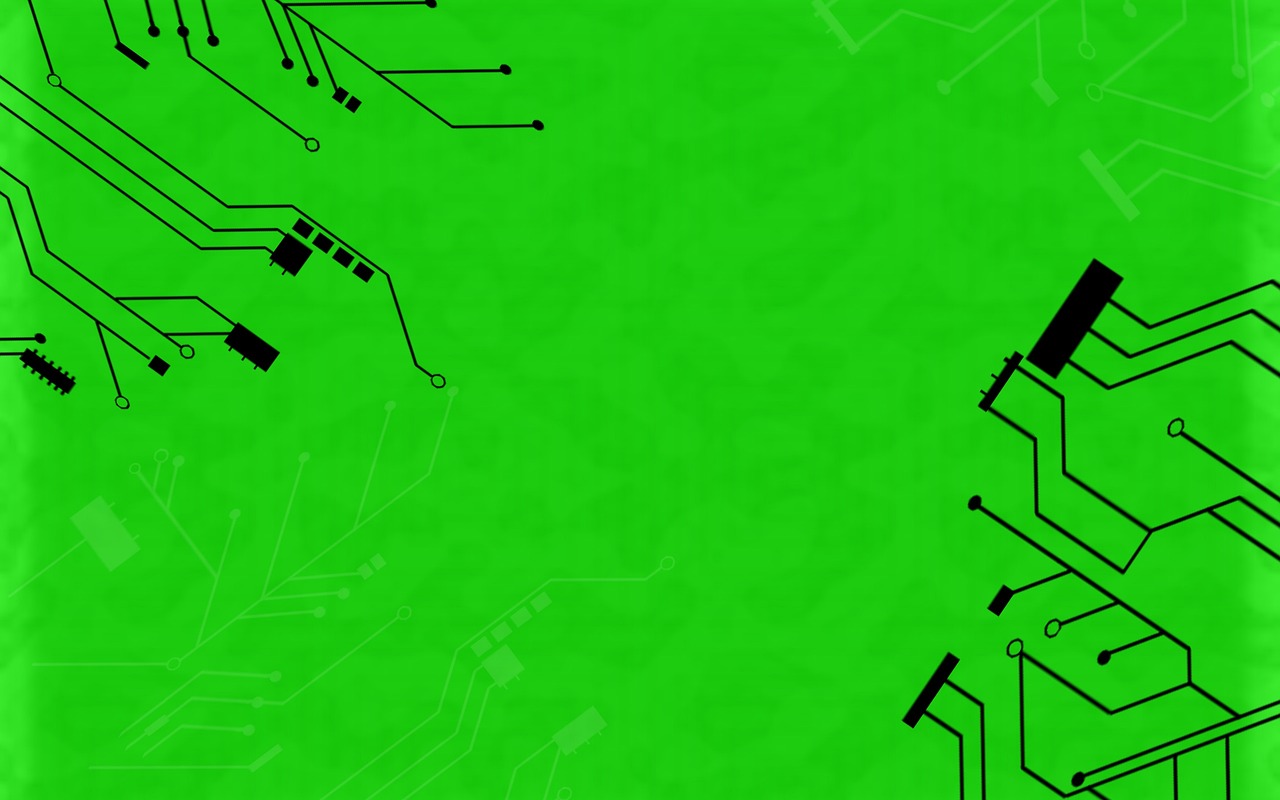
Accountability Measures
In a world where surveillance technology is becoming increasingly prevalent, the implementation of is not just important; it is essential. Without these measures, the potential for abuse is staggering. Imagine a scenario where governments and corporations can monitor individuals without any oversight—it's a recipe for disaster. To mitigate this risk, we must establish clear guidelines and frameworks that govern how surveillance technologies are deployed and monitored.
One effective way to ensure accountability is through the establishment of independent oversight bodies. These organizations can serve as watchdogs, ensuring that surveillance practices are transparent and justifiable. For instance, they could conduct regular audits of surveillance programs and publish their findings. This would not only promote transparency but also foster public trust. After all, if citizens know that there’s a system in place to monitor the monitors, they are more likely to feel secure in their privacy.
Moreover, there should be stringent data protection laws that dictate how long data can be retained and under what circumstances it can be accessed. These laws should be designed to protect individuals from unnecessary intrusion. For example, if a surveillance system captures data during an investigation, there should be strict protocols on how that data is stored and used thereafter. This ensures that personal information is not exploited or misused.
In addition to legal frameworks, organizations must also adopt internal accountability measures. This could include training staff on ethical data usage and implementing strict penalties for violations of privacy policies. It's not just about having rules; it's about fostering a culture of respect for individual privacy within organizations. When employees understand the ethical implications of their actions, they are less likely to engage in practices that could harm individuals or communities.
Finally, public engagement is crucial. Citizens should have a voice in discussions about surveillance technologies, especially in how they are implemented in their communities. Town hall meetings, surveys, and public forums can serve as platforms for dialogue between the public and decision-makers. This engagement not only helps to educate the public about their rights but also holds organizations accountable for their actions.
In summary, accountability measures are vital in the realm of surveillance technology. They not only protect individual rights but also enhance public trust in institutions. Without these measures, we risk creating a society where privacy is a luxury rather than a fundamental right.
- What are accountability measures in surveillance technology?
Accountability measures are guidelines and frameworks established to ensure transparency, ethical use, and oversight of surveillance technologies. - Why is public engagement important?
Public engagement allows citizens to voice their concerns and preferences regarding surveillance practices, fostering a collaborative approach to privacy and security. - How can organizations ensure data protection?
Organizations can ensure data protection by implementing stringent data retention policies, conducting regular audits, and training staff on ethical data usage.
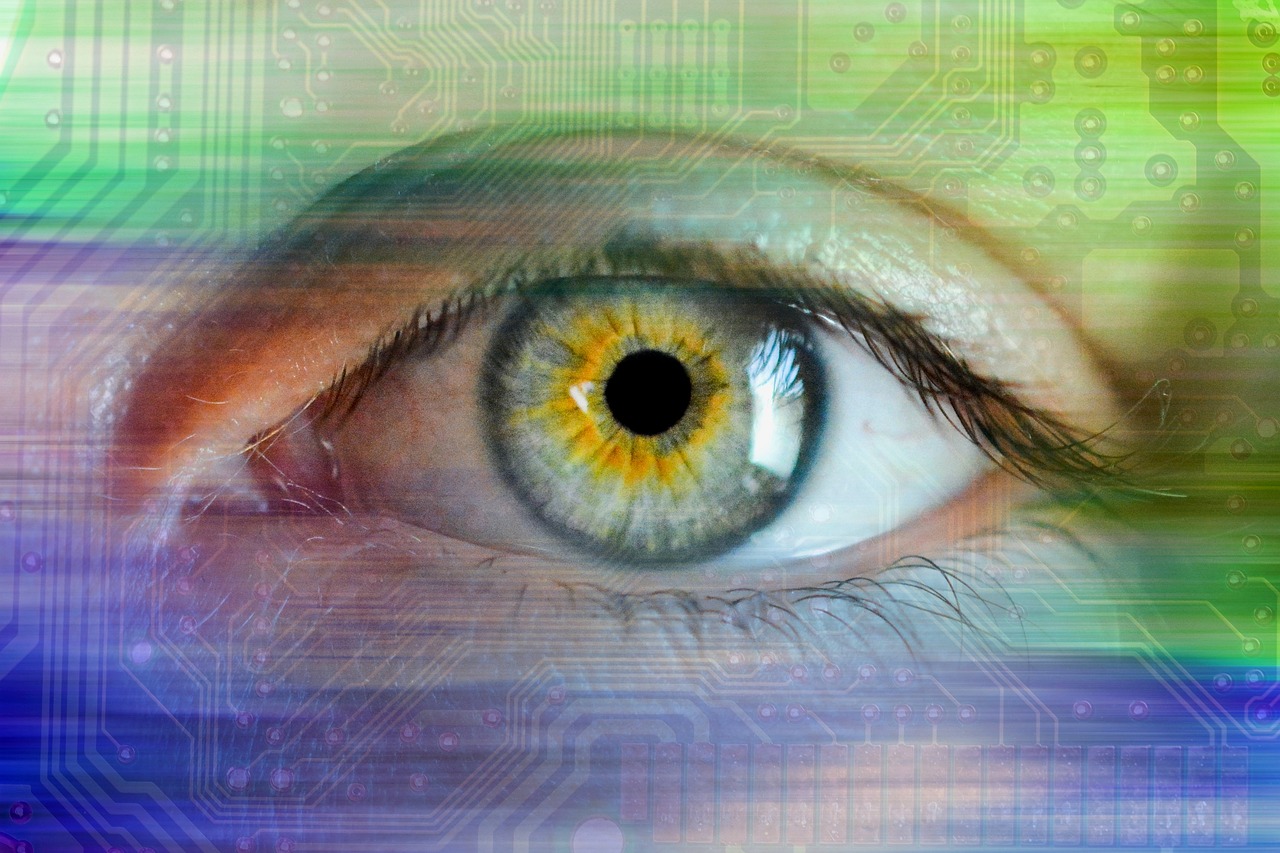
Corporate Surveillance
In today's digital age, the concept of has emerged as a pressing ethical dilemma that intertwines with our daily lives. Companies are leveraging advanced surveillance technologies to monitor employees, track consumer behavior, and gather vast amounts of personal data. While this can lead to improved services and enhanced productivity, it raises significant questions about privacy and consent. Are we merely data points in a corporate machine, or do we retain our rights as individuals?
One of the most concerning aspects of corporate surveillance is the potential for exploitation. Companies often collect data without fully informing individuals about how their information will be used. This lack of transparency can lead to a feeling of betrayal among consumers, who might be unaware that their browsing habits, purchasing patterns, and even personal conversations are being monitored and analyzed for profit. Imagine walking into a store and realizing that every move you make is being recorded, analyzed, and sold to the highest bidder. It’s a chilling thought, isn’t it?
Moreover, the ethical implications extend beyond consumer privacy. Employees, too, are subject to corporate surveillance practices that can feel invasive. For instance, many companies now utilize technologies such as:
- Video monitoring in the workplace
- Keystroke logging on company devices
- Tracking software on employee smartphones
This constant oversight can create a culture of distrust, where employees feel like they are under constant scrutiny. The question then arises: does this surveillance boost productivity, or does it stifle creativity and morale? Many argue that when employees feel trusted, they are more likely to perform at their best.
Furthermore, the data collected through corporate surveillance can be weaponized against individuals. For example, information about an employee's health issues or personal life can be used inappropriately, leading to discrimination or unfair treatment. The potential for misuse is vast, and without stringent regulations, there is little to stop companies from crossing ethical lines.
To illustrate the impact of corporate surveillance, consider the following table that summarizes key ethical concerns:
| Ethical Concern | Description |
|---|---|
| Privacy Invasion | Monitoring employees and consumers without their explicit consent. |
| Data Exploitation | Using collected data for profit without fair compensation or transparency. |
| Employee Trust | Creating a workplace culture of distrust and fear. |
| Discrimination Risks | Potential misuse of personal data leading to biased treatment. |
In conclusion, while corporate surveillance can provide benefits, it is crucial to navigate these waters carefully. Companies must prioritize ethical practices by implementing clear policies regarding data collection, ensuring transparency, and fostering a culture of trust. Only then can we strike a balance between leveraging technology for business growth and respecting the fundamental rights of individuals.
- What is corporate surveillance? Corporate surveillance refers to the monitoring and data collection practices employed by companies to track employee performance and consumer behavior.
- Are there laws regulating corporate surveillance? Yes, various laws exist, but they often vary by country and may not adequately protect individual privacy.
- How can individuals protect their privacy from corporate surveillance? Individuals can protect their privacy by being aware of data collection policies, using privacy settings on devices, and advocating for stronger privacy regulations.

Informed Consent
In the digital age, where data is often referred to as the new oil, the concept of has never been more critical. It’s not just a legal formality; it’s a fundamental right that empowers individuals to understand and control how their personal information is collected and used. Imagine walking into a store where every move you make is tracked, yet you have no idea what data is being collected or how it might be used against you. This scenario highlights the urgent need for transparency and clarity in the deployment of surveillance technologies.
When we talk about informed consent, we’re diving into the murky waters of trust and autonomy. Individuals should have the right to know what information is being gathered, for what purpose, and how it will be utilized. Unfortunately, many organizations fail to provide this essential information, leaving people in the dark. It’s akin to signing a blank check—you're giving away your data without understanding the potential consequences.
To foster a culture of informed consent, organizations must prioritize transparency in their data usage policies. This means clearly outlining the types of data collected, the methods of collection, and the intended uses. A well-structured policy can be a powerful tool to build trust with users. For instance, consider the following key elements that should be included in any informed consent framework:
- Clear Language: Avoid legal jargon and use simple, straightforward language that everyone can understand.
- Purpose of Data Collection: Explain why the data is being collected and how it will benefit the user.
- Data Sharing Practices: Inform users if their data will be shared with third parties and for what reasons.
- Data Retention Policies: Specify how long the data will be stored and the reasons for retention.
- Opt-Out Options: Provide users with the ability to withdraw consent easily, allowing them to take control of their data.
Moreover, establishing ethical guidelines for the development and use of surveillance technologies is crucial. These guidelines should not only focus on the technical aspects but also consider the societal implications of data collection. For instance, how does the collection of data impact vulnerable communities? Are there safeguards in place to prevent discrimination? By addressing these questions, organizations can align their practices with societal values, ensuring that technological advancements do not come at the expense of individual rights.
In conclusion, informed consent is more than just a checkbox; it’s a vital component of a respectful and ethical relationship between organizations and individuals. By prioritizing transparency and ethical guidelines, we can create a safer digital environment where individuals feel empowered to make informed choices about their personal data.
What is informed consent?
Informed consent refers to the process by which individuals are made aware of how their personal data will be collected, used, and shared, allowing them to make informed decisions about their participation.
Why is informed consent important?
Informed consent is crucial because it empowers individuals, promotes transparency, and builds trust between users and organizations. It ensures that personal data is handled ethically and responsibly.
How can organizations ensure informed consent?
Organizations can ensure informed consent by providing clear, accessible information about data collection practices, allowing users to opt-out, and implementing ethical guidelines for data usage.
What are the risks of not obtaining informed consent?
Not obtaining informed consent can lead to breaches of privacy, loss of trust, and potential legal consequences for organizations. It can also result in individuals feeling exploited or vulnerable.
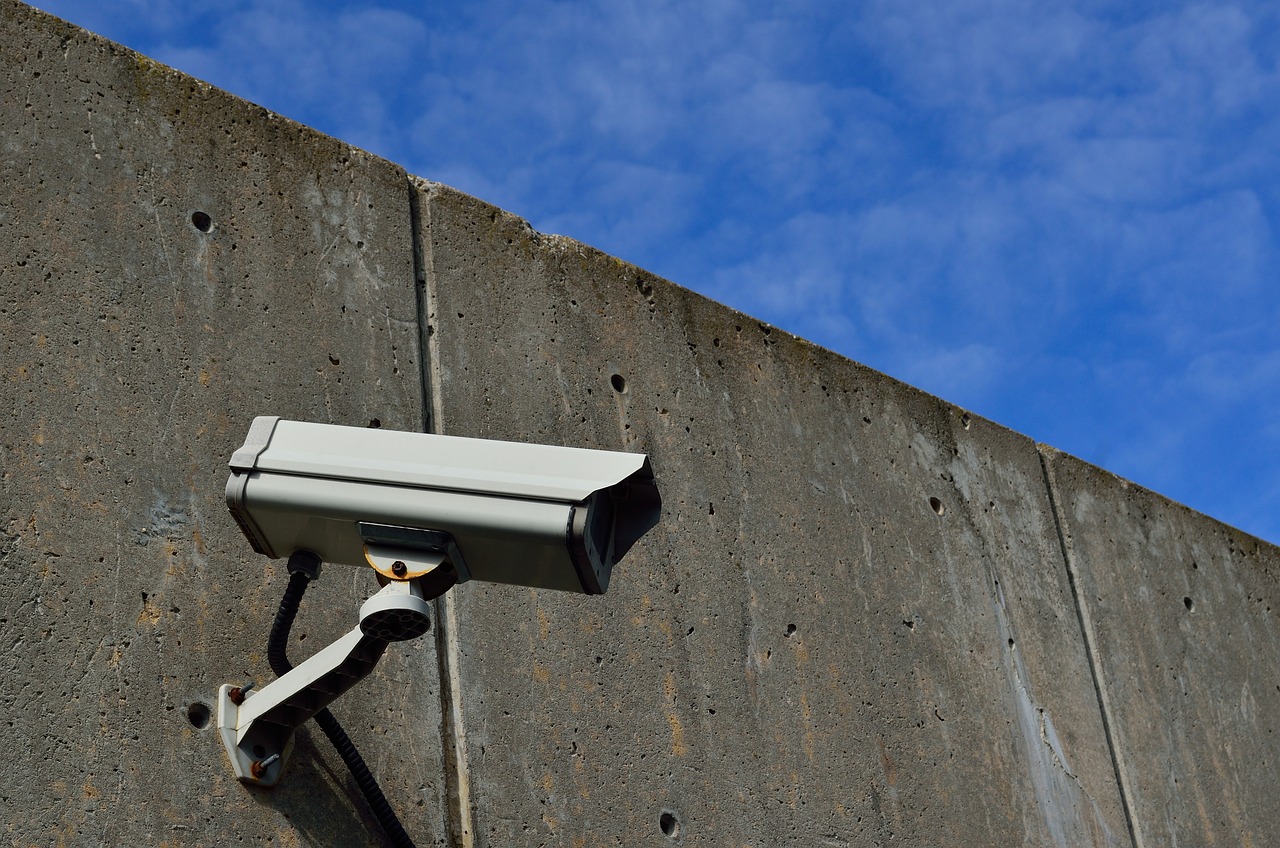
Transparency in Data Usage
In today's digital landscape, the importance of transparency in data usage cannot be overstated. As surveillance technologies become more prevalent, individuals must be fully informed about how their data is collected, used, and shared. This transparency is not just a best practice; it is a fundamental right that empowers consumers and fosters trust between organizations and the public. When companies and governments operate in the shadows, it creates an environment ripe for abuse and exploitation. Think of it like a foggy window—if you can't see through it, how can you trust what’s happening on the other side?
To achieve true transparency, organizations must implement clear and straightforward policies regarding data usage. This includes:
- Clearly outlining what data is collected
- Explaining how the data will be used
- Detailing who will have access to the data
- Providing information on how long the data will be stored
- Offering users the ability to opt-out or delete their data
Moreover, transparency should extend beyond just the initial collection of data. Organizations need to maintain open lines of communication with their users, offering regular updates on any changes to data policies. For example, if a company decides to partner with a third party for data analytics, it should inform its users and explain the implications of this partnership. This kind of openness not only enhances user trust but also promotes a culture of accountability.
Additionally, regulatory frameworks can play a critical role in enforcing transparency. Laws such as the General Data Protection Regulation (GDPR) in Europe set a precedent for how organizations should handle personal data. These regulations require companies to be forthright about their data practices and provide individuals with rights regarding their own information. By adhering to such regulations, organizations can demonstrate their commitment to ethical data usage, thereby strengthening their reputation and fostering public confidence.
Ultimately, transparency in data usage is not just about compliance; it’s about building a relationship based on trust and respect. When individuals feel confident that their data is being handled responsibly, they are more likely to engage with technologies and services that rely on data collection. In a world where surveillance technology is becoming increasingly sophisticated, the need for transparency is more critical than ever. It’s not just about protecting privacy; it’s about creating a digital environment where individuals feel empowered and informed.
- What is data transparency? Data transparency refers to the clarity and openness with which organizations communicate their data collection, usage, and sharing practices.
- Why is transparency important? Transparency is crucial for building trust between organizations and individuals, ensuring users understand how their data is being used.
- How can I ensure my data is being used transparently? Look for clear privacy policies, opt-out options, and organizations that comply with regulations like GDPR.
- What are the consequences of a lack of transparency? A lack of transparency can lead to mistrust, potential data misuse, and a negative impact on an organization’s reputation.
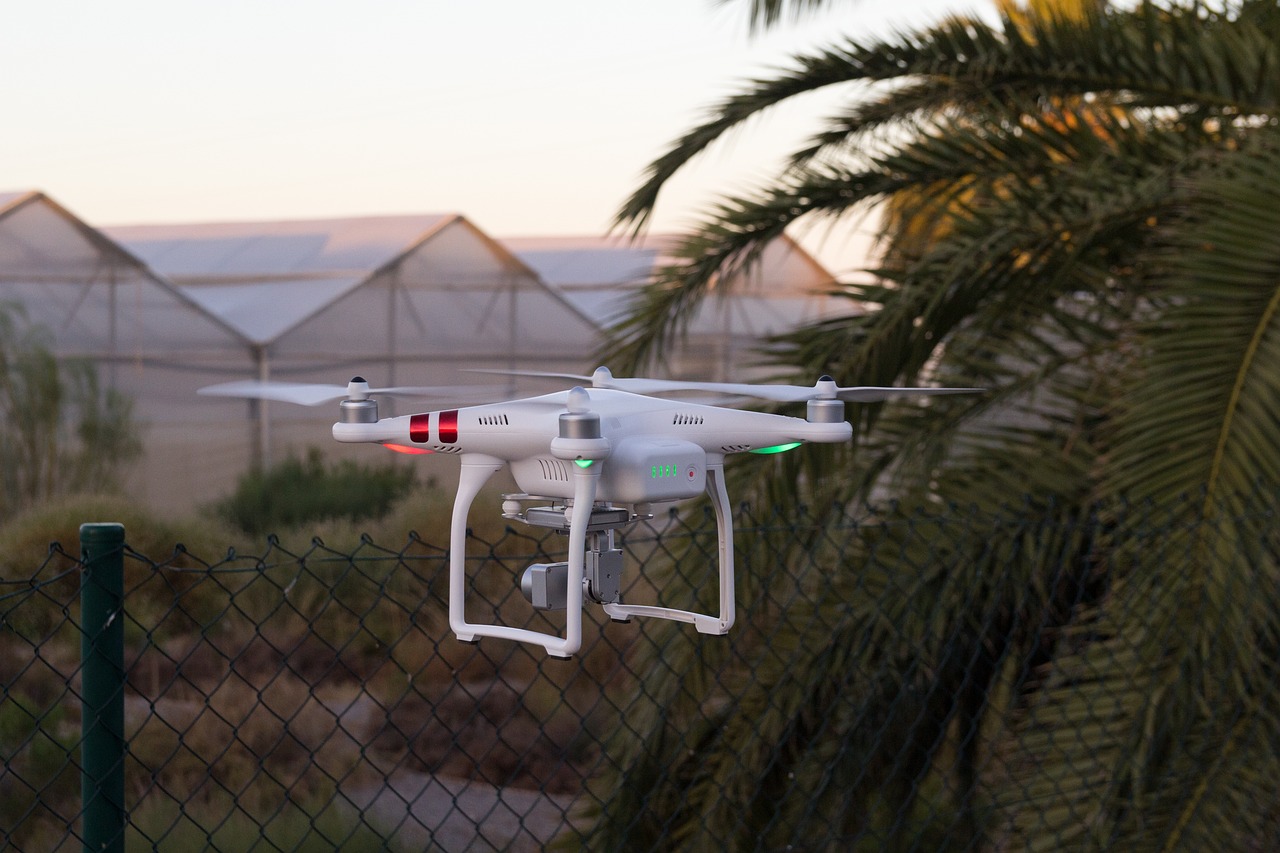
Ethical Guidelines
As we navigate the complex landscape of surveillance technology, establishing becomes essential to safeguard individual rights and ensure that advancements align with our societal values. These guidelines serve as a moral compass, directing how technology is developed and deployed, while also addressing the potential for abuse and exploitation. Without these frameworks, we risk creating a society where privacy is merely an afterthought, and personal freedoms are compromised.
One of the fundamental aspects of these ethical guidelines is the principle of proportionality. This means that any surveillance measures taken should be proportionate to the threat they aim to mitigate. For instance, if a technology is implemented in response to a specific security concern, it should not infringe on the rights of individuals beyond what is necessary. This principle encourages a careful evaluation of the need for surveillance against the potential harm it may cause to personal freedoms.
Moreover, the guidelines should emphasize the importance of transparency. Individuals have the right to know when they are being monitored and how their data is being used. This transparency not only fosters trust between the public and organizations but also empowers individuals to make informed decisions regarding their privacy. Organizations should provide clear and accessible information about their surveillance practices, ensuring that users understand the implications of their consent.
In addition to transparency, accountability plays a crucial role in ethical surveillance practices. Organizations and governments must be held accountable for their surveillance activities. This accountability can be achieved through independent oversight bodies that monitor surveillance practices, ensuring they adhere to ethical standards. When people know that there are checks and balances in place, they are more likely to feel secure in their rights and freedoms.
Furthermore, the guidelines should include provisions for data minimization. This principle advocates for collecting only the data that is necessary for a specific purpose and retaining it only for as long as needed. By limiting data collection, organizations can reduce the risks associated with data breaches and misuse, thereby protecting individuals' privacy more effectively. The less data collected, the less likely it is to be exploited.
Lastly, ethical guidelines must also address the impact on vulnerable communities. Surveillance technologies often disproportionately affect marginalized groups, leading to further discrimination and social injustice. Therefore, it is imperative that these guidelines encourage a critical examination of how surveillance practices may exacerbate inequalities. By prioritizing equity and fairness in the development and deployment of surveillance technologies, we can work towards a more just society.
In conclusion, the establishment of ethical guidelines for surveillance technology is not just a regulatory necessity; it is a moral imperative. By focusing on principles such as proportionality, transparency, accountability, data minimization, and equity, we can harness the benefits of surveillance technology while mitigating its risks. These guidelines should serve as a foundation for a balanced approach that respects individual rights while addressing legitimate security concerns.
- What are ethical guidelines in surveillance technology?
Ethical guidelines are principles that govern the responsible use of surveillance technologies, ensuring that they respect individual rights and societal values.
- Why is transparency important in surveillance practices?
Transparency is crucial because it allows individuals to understand when and how they are being monitored, fostering trust and informed consent.
- How does accountability relate to surveillance?
Accountability ensures that organizations and governments are held responsible for their surveillance activities, promoting adherence to ethical standards.
- What is data minimization?
Data minimization is the practice of collecting only the necessary data for a specific purpose and retaining it for the shortest time required.
- How do surveillance technologies impact marginalized communities?
Surveillance technologies can disproportionately affect marginalized communities, leading to increased discrimination and social injustice.
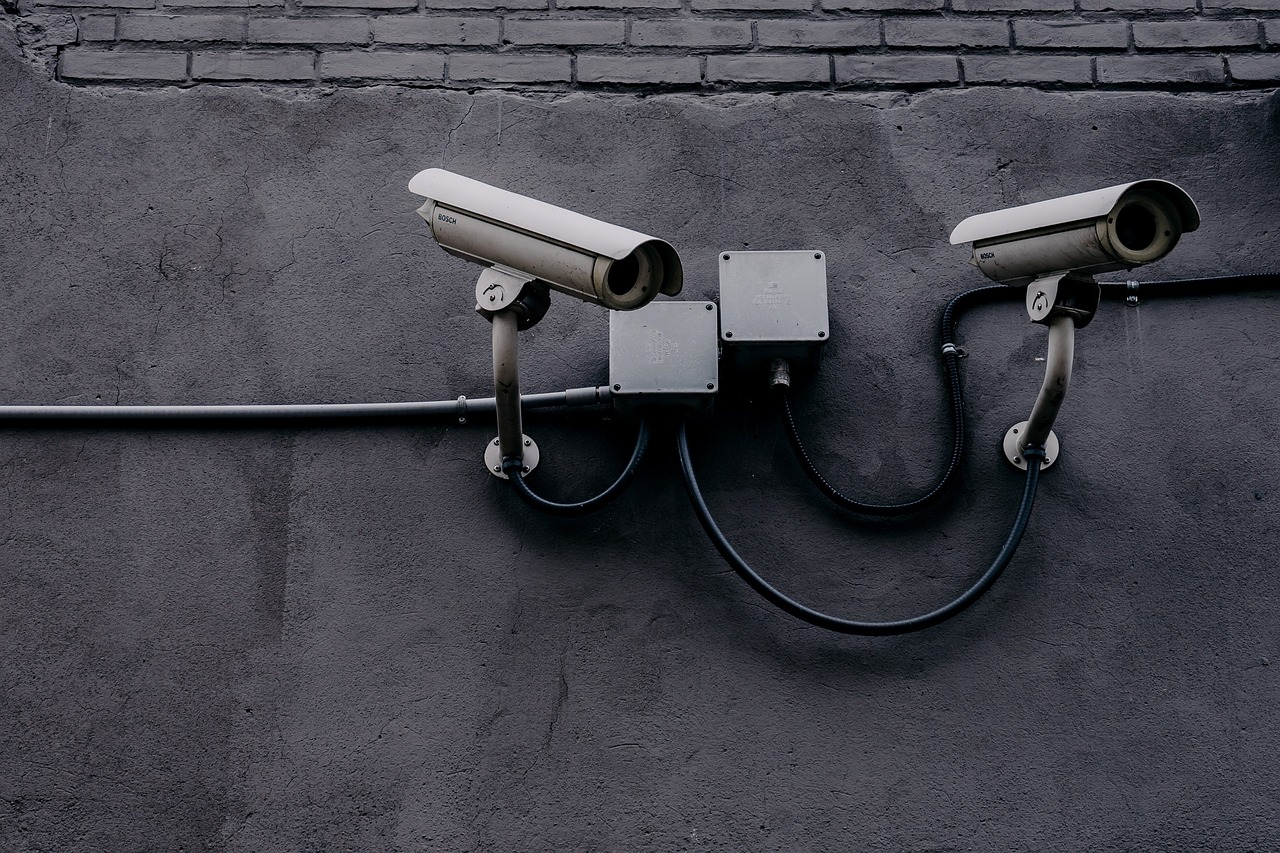
Impact on Vulnerable Communities
Surveillance technology has a profound and often detrimental impact on vulnerable communities. These groups, which may include racial minorities, low-income populations, and marginalized social classes, frequently find themselves under heightened scrutiny. Imagine living in a neighborhood where cameras are constantly watching your every move; it can create a sense of fear and anxiety that stifles freedom and expression. The implications of surveillance extend beyond mere observation; they can lead to discrimination and exacerbate existing inequalities.
For example, studies have shown that law enforcement agencies often deploy surveillance technologies in areas predominantly inhabited by people of color. This can result in a disproportionate number of arrests and legal actions against these communities, perpetuating a cycle of disadvantage. The data collected through such surveillance may not only be used to monitor criminal activity but can also be misused to profile and target individuals based on their race or socioeconomic status. The question arises: does this technology truly serve to protect, or does it merely reinforce societal biases?
Furthermore, the lack of transparency around surveillance practices means that individuals in these communities often remain unaware of how their data is being collected and used. This ignorance can lead to a sense of helplessness and resignation, as people feel they have no control over their own lives. When individuals are not informed about surveillance technologies, they cannot provide informed consent, which is a fundamental right in any democratic society. It’s akin to playing a game where the rules are hidden; how can anyone expect to win?
Additionally, the psychological effects of constant monitoring can be severe. The pressure to conform to societal norms when one feels they are being watched can stifle creativity and self-expression. Vulnerable communities, already facing numerous challenges, may find their voices further silenced under the weight of surveillance. In this context, the technology that is supposed to enhance safety can instead become a tool of oppression.
To illustrate the impact of surveillance on vulnerable communities, consider the following table:
| Community Impact | Consequences |
|---|---|
| Increased policing | Higher rates of arrests and legal troubles |
| Data profiling | Targeting based on race or income |
| Psychological distress | Fear, anxiety, and self-censorship |
| Lack of transparency | Feeling of helplessness and violation of rights |
In light of these issues, it is crucial to address the ethical implications of surveillance technology, particularly concerning vulnerable communities. We must ask ourselves: how can we ensure that the deployment of such technologies does not exacerbate social injustices? The answer lies in fostering a dialogue that includes the voices of those most affected, ensuring that their experiences shape the policies that govern surveillance practices.
- What are the main ethical concerns regarding surveillance technology? The primary concerns include privacy violations, lack of informed consent, and the potential for discrimination against marginalized groups.
- How does surveillance technology affect vulnerable communities? It can lead to increased policing, profiling, and psychological distress, further entrenching social inequalities.
- What measures can be taken to protect individual rights? Implementing transparency in data usage, establishing ethical guidelines, and fostering community dialogue are essential steps.
- Why is informed consent important in surveillance technology? Informed consent ensures that individuals are aware of how their data is used and that they have a say in the monitoring processes affecting their lives.
Frequently Asked Questions
- What are the main ethical concerns related to surveillance technology?
The primary ethical concerns include issues of privacy, security, and informed consent. Many people are monitored without their knowledge, which can lead to an erosion of personal freedom. Additionally, there's a significant debate on whether the increased security provided by surveillance justifies the potential infringement on individual rights.
- How does surveillance technology affect individual privacy?
Surveillance technology can significantly impact individual privacy by allowing constant monitoring of personal activities. This can create a sense of being watched, leading to self-censorship and a reluctance to express opinions freely. The fear of surveillance can alter how people behave in public and private spaces.
- What is the balance between security and freedom?
Finding the right balance between national security and personal freedom is a delicate matter. While surveillance may enhance safety, it can also undermine democratic principles. The challenge lies in ensuring that security measures do not come at the cost of fundamental rights and freedoms.
- How does government surveillance impact public trust?
Government surveillance can lead to a significant decline in public trust. When citizens feel their privacy is compromised, it can create a rift between the state and its people. This erosion of trust can have long-lasting effects on civic engagement and the overall relationship between citizens and their government.
- What accountability measures are necessary for government surveillance?
Implementing accountability measures is crucial to ensure transparency in government surveillance practices. This includes regular audits, independent oversight, and clear policies on data usage. Such measures help protect citizens' rights and foster a system where oversight is prioritized.
- What ethical concerns arise from corporate surveillance?
Corporate surveillance raises significant ethical questions regarding consumer privacy, data ownership, and the potential exploitation of personal information for profit. Companies must navigate these issues carefully to maintain consumer trust and adhere to ethical standards.
- Why is informed consent important in surveillance technologies?
Informed consent is essential because individuals should fully understand how their data is collected and used. Without proper consent, the deployment of surveillance technologies can lead to mistrust and a feeling of exploitation among users.
- How can organizations ensure transparency in data usage?
Organizations can ensure transparency by clearly outlining their data usage policies and practices. Providing easy-to-understand information about how data is collected, stored, and utilized helps individuals make informed decisions about their privacy.
- What ethical guidelines should be established for surveillance technology?
Establishing ethical guidelines involves creating standards that align with societal values and protect individual rights. These guidelines should address issues such as data protection, user consent, and the potential for discrimination, ensuring that technology is used responsibly and ethically.
- How does surveillance technology impact vulnerable communities?
Surveillance technology can disproportionately affect marginalized communities, leading to increased discrimination and social injustice. It's crucial to critically examine how these technologies impact equity and fairness to ensure that all individuals are treated justly.



















